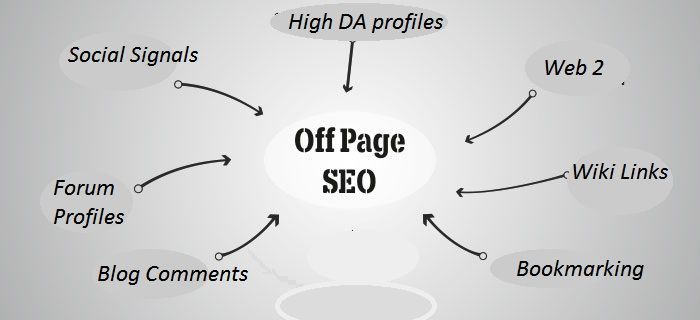
Keyword Research: Uncover Opportunities for Organic Traffic
Are you struggling to drive organic traffic to your website? Keyword research might just be the solution you're looking for. By identifying relevant and high-volume keywords, you can uncover opportunities that will help boost your search engine rankings and bring more visitors to your site. Let's explore the importance of keyword research and how it can benefit your online presence. Get ready to discover the power of targeting the right keywords!
Understanding the role of keyword research in SEO
Keyword research is one of the most important, valuable, and high return activities in the search marketing field.
Understanding the role that keyword research plays in SEO can help you to more effectively target your audience and improve your organic traffic.
Organic traffic is the term used to describe visitors who find your website through a search engine, such as Google, without clicking on an ad.
To earn organic traffic, your website must be visible in the search engine results pages (SERPs), which can be achieved through SEO.
SEO is the process of optimizing your website so that it will rank higher in the SERPs for relevant keywords.
Keyword research is a crucial part of SEO because it helps you to identify which keywords are most likely to bring organic traffic to your website.
Tools and techniques for effective keyword research
There are a number of tools and techniques that can be used for effective keyword research. One of the most important things to keep in mind is to use a variety of sources for your research. This will help you to get a well-rounded view of the opportunities that are available.
One great tool for keyword research is the Google AdWords Keyword Planner. This tool allows you to see how often certain keywords are searched for, and also gives you estimated bid prices for those keywords. This information can be very valuable in helping you to determine which keywords are worth targeting.
Another great source of keywords is your competitor's websites. By looking at what keywords they are targeting, you can get some insight into which ones may be worth targeting as well. There are a number of tools that can help you with this, such as SEMrush.
Don't forget about using social media sites like Twitter and Facebook to do your keyword research. These sites can be a great way to see what people are talking about in relation to your niche. You can also use them to find out what people are searching for when they're looking for products or services like yours.
Long-tail keywords and their impact on targeted traffic
When it comes to uncovering opportunities for organic traffic, long-tail keywords are often overlooked. But in reality, they can be extremely valuable in driving targeted traffic to your website.
What are long-tail keywords? Long-tail keywords are simply phrases or questions that are more specific and detailed than general, short-tail keywords. For example, instead of just using the keyword "shoes", a long-tail keyword could be "women's black leather dress shoes size 8".
While short-tail keywords may get you more overall traffic, long-tail keywords are usually much easier to rank for and can result in higher quality traffic. That's because people who use long-tail keywords are generally further along in the buying cycle and thus more likely to convert into customers or clients.
So how can you find long-tail keywords that will help drive targeted traffic to your website? There are a few different methods you can use, including:
1) Google AdWords Keyword Planner: This tool allows you to see how often certain keywords are being searched for on Google. You can also use it to find related keywords that you might not have thought of.
2) Amazon Kindle AutoSuggest: If you have a book on Amazon Kindle, you can use the auto suggest feature to see what people are searching for when they're looking for something similar to your book.
3) Google Trends: This tool lets you see how popular certain search terms
Long-tail keywords are keywords that are more specific and detailed than general, short-tail keywords. They usually consist of 3-5+ words and are much more targeted towards a specific niche audience. Because of their specificity, long-tail keywords tend to have less competition than short-tail keywords and can be a great way to increase targeted traffic to your website.
In addition to increasing targeted traffic, long-tail keywords can also help you to rank higher in search engine results pages (SERPs). This is because they are often more aligned with the user’s intent when searching, making them a valuable asset for SEO.
If you’re looking to increase organic traffic to your website, conducting keyword research to uncover long-tail keywords is a great place to start. There are a number of tools and methods you can use to find relevant long-tail keywords for your business – some of which we’ve outlined below.
Analyzing keyword competition and search volume
When you’re trying to rank for certain keywords, it’s important to know how much competition there is for those keywords. You can use a tool like Google AdWords Keyword Planner to get an idea of how much competition there is for a given keyword.
Once you know the level of competition for a keyword, you can start to assess whether or not it’s worth trying to rank for that keyword. If the competition is too high and you don’t think you can realistically achieve a top spot, then it might not be worth your while.
In addition to competition, you also need to consider search volume when assessing keywords. A keyword with high search volume but low competition could be a good opportunity, whereas a keyword with low search volume and high competition might not be worth your time.
Tools like Google AdWords Keyword Planner can help you assess both competition and search volume for given keywords, so you can make an informed decision about which keywords are worth targeting in your SEO efforts.
Keyword mapping and optimizing content for targeted keywords
As part of your keyword research, you should map out the keywords you're targeting to the pages on your website. This will help you optimize your website's content for those keywords and improve your chances of ranking in the search engines for those terms.
To do this, start by creating a list of all the keywords you're targeting. Then, go through your website and make a note of which page each keyword could be targeted to. Once you have this mapping, you can start optimizing your content for those keywords.
Some things to keep in mind when optimizing your content:
- Use the keyword in the title of the page
- Use the keyword in the headline (H1) of the page
- Use the keyword throughout the body copy of the page
- Use variations of the keyword throughout the page (e.g., if you're targeting "dog beds", also use "dog bed", "dogs' beds", etc.)
- Optimize your images for Google Image Search by including relevant keywords in their file names and alt text
As you may know, keyword research is the process of finding and analyzing the keywords that people are searching for in relation to your business.
This allows you to identify opportunities for organic traffic and optimize your content accordingly.
There are a number of different methods for conducting keyword research, but one of the most effective is mapping keywords to specific pages on your website. This allows you to target specific keywords with each piece of content, which can help you rank higher in search engine results pages (SERPs).
To do this effectively, you'll need to have a good understanding of your target audience and what they're looking for. Once you know this, you can map out a keyword strategy that includes both short-tail and long-tail keywords. Short-tail keywords are those that are more general and have higher search volume. Long-tail keywords, on the other hand, are more specific and tend to have lower search volume.
Both types of keywords are important for ranking well in SERPs. However, it's often easier to rank for long-tail keywords since there is less competition. Therefore, it's important to include both types of keywords in your content strategy.
Once you've mapped out your keyword strategy, the next step is to optimize your content for those targeted keywords. This means including the keywords in the title, headings, and body of your content in a way that is natural and easy to read. Including too many keywords (known as "key
As you know, keyword research is the process of finding and targeting niche-specific, high-value keywords that will help your website rank in organic search results. But did you know that once you've found these keywords, you need to map them to specific pages on your website? And then optimize your content for those targeted keywords?
It's true! If you want your website to rank for specific keywords, you need to make sure those keywords are mapped to relevant pages on your site. Then, you need to optimize your content for those targeted keywords. This includes using the keyword in the title and throughout the body of the article, as well as in the meta tags and description.
By mapping and optimizing your content for targeted keywords, you can dramatically increase your chances of ranking in organic search results. So don't forget this important step in your keyword research process!
Monitoring and adjusting keyword strategy over time
As your website grows, so too will the number of keywords you rank for. It’s important to continuously monitor your keyword strategy to ensure that you’re still targeting relevant keywords that have high search volume. If you find that a certain keyword is no longer driving traffic to your website, adjust your strategy accordingly.
There are a few different ways to go about monitoring your keyword strategy. Google Analytics is a great place to start. You can set up goals and track conversions to see which keywords are driving traffic and leads to your website.
Another way to monitor your keyword strategy is through SERP analysis. This involves tracking the position of your website for certain keywords over time. If you see a dip in rankings for a particular keyword, it’s time to adjust your approach.
Don’t forget about competitor research. Keeping an eye on what your competitors are doing will give you insights into what’s working well for them and what strategies you need to avoid.
Keyword research is an essential part of SEO and can be used to uncover a variety of opportunities for organic traffic. By understanding how people are using different keywords, you can optimize your website and content in order to get the most out of each search query. Use these tips as a starting point to help you improve your keyword research skills and drive more organic traffic to your site.
Marketing Baristas
We are the premier digital marketing solution in Itasca, IL and surrounding suburbs of Chicago. Contact us today to get your free, no-obligation consultation!
Get In Touch
1925 Cherry Lane,
Northbrook, IL 60062
United States









